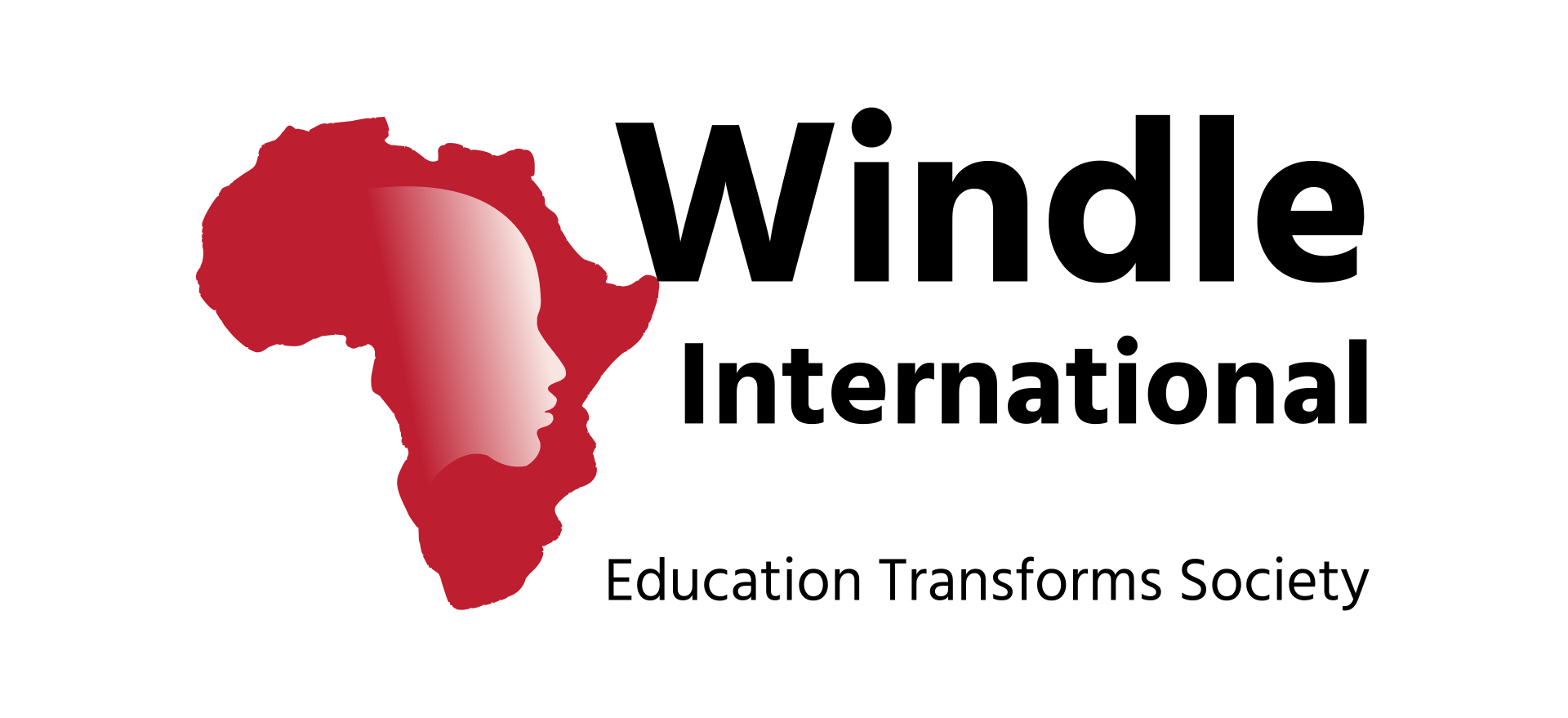Connecting Children for Education and Peace
International project fostering borderless digital friendships to build understanding and create peaceful societies
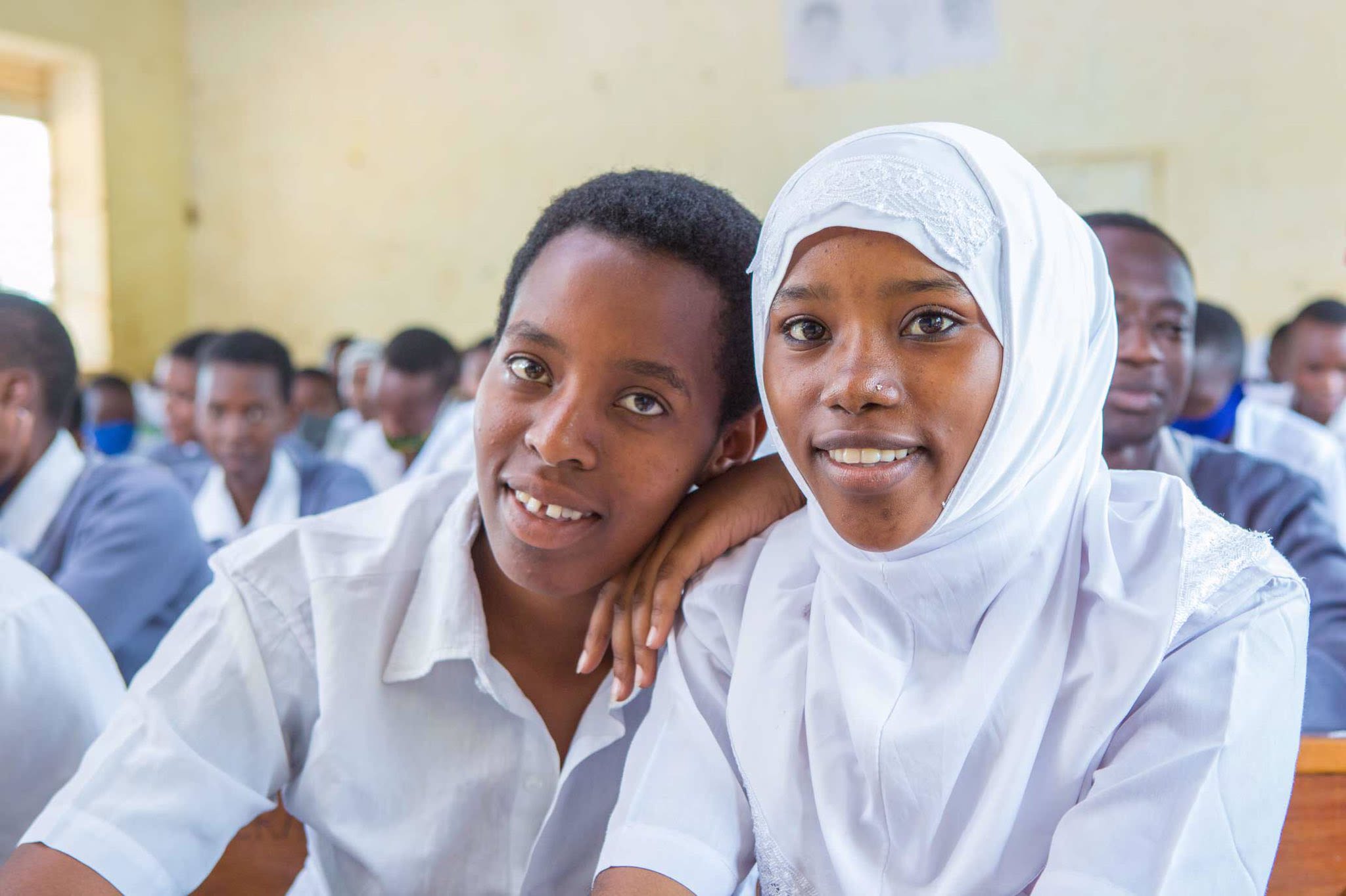
Conflict and instability make eastern Africa one of the most unstable regions in the world.
Wars deprive millions of children of an education. Conflict can have a devastating impact on people’s psychological health and wellbeing. In Kenya and Uganda, almost 2 million refugees and asylum seekers live in camps and settlements.
More than half of them are under 18 years old.
Children and young people living in the camps suffer from overcrowded living conditions, few economic opportunities and poor infrastructure. They have minimal access to basic social services and unhygienic living areas. Transition to secondary school is limited, with dropout rates escalating for adolescents due to language barriers.
English is the official language of instruction in Kenya and Uganda, but many of the children living in the refugee camps and settlements don't have the language skills they need to undertake the national curriculum. Only 24% of refugees are enrolled in secondary schools, compared with an average of 84% globally (UNHCR, 2020). Young people out of school are vulnerable to violence, child labour, teenage pregnancy and early marriage.
In Kenya and Uganda, there is a growing demand for English language support.
It's seen as an essential element of a good education, being able to secure livelihoods, and to access basic services within camps. It is also hugely important for being able to live harmoniously within multilingual, multicultural societies. With a common language, children learn to debate, to agree and disagree, and to live together by respecting the opinions of others.
The European Commission recognises the international dimension to citizenship education. Developing skills for work and life are one of the most pressing issues when it comes to the high youth unemployment in Europe. With growing social tensions worldwide, today’s young people increasingly need international experience develop their world citizenship skills and grow towards becoming engaged adults.
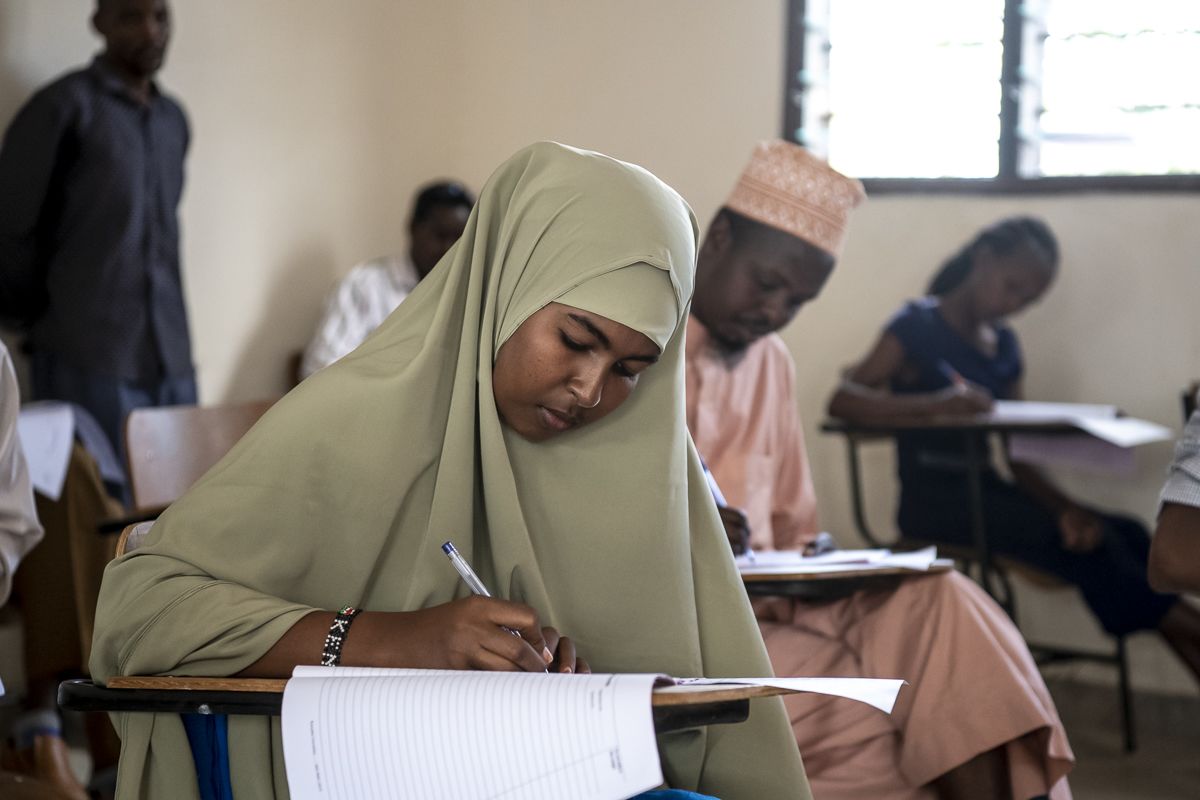
The project Connecting Children for Education and Peace will help 80 secondary school students from East Africa and Europe to improve their English language skills and develop a deeper understanding of global, multi-cultural societies.
The objective is to help every child find their voice through developing digital friendships in order to gain confidence, improve language skills, become engaged global citizens, overcome trauma, and increase their resilience. The project will promote understanding of different cultures, and foster inclusive friendships as a tool for building peaceful societies.
Each student from East Africa (Kenya and Uganda) will be matched to a student in Europe (primarily The Netherlands) based on their English proficiency level, age, and cultural differences. Participants will be between 14 and 19 years old, and half of them will be girls/women.
In Kenya and Uganda, the participants will be refugees, asylum seekers, or members of the host community. In Europe, participants will be selected from different countries and socio-economic backgrounds.
Each month, students will write emails to each other and develop a dialogue to learn about each other's lives and cultures. Students will be guided with specific conversation guidelines and training sessions on peace education and co-existence.
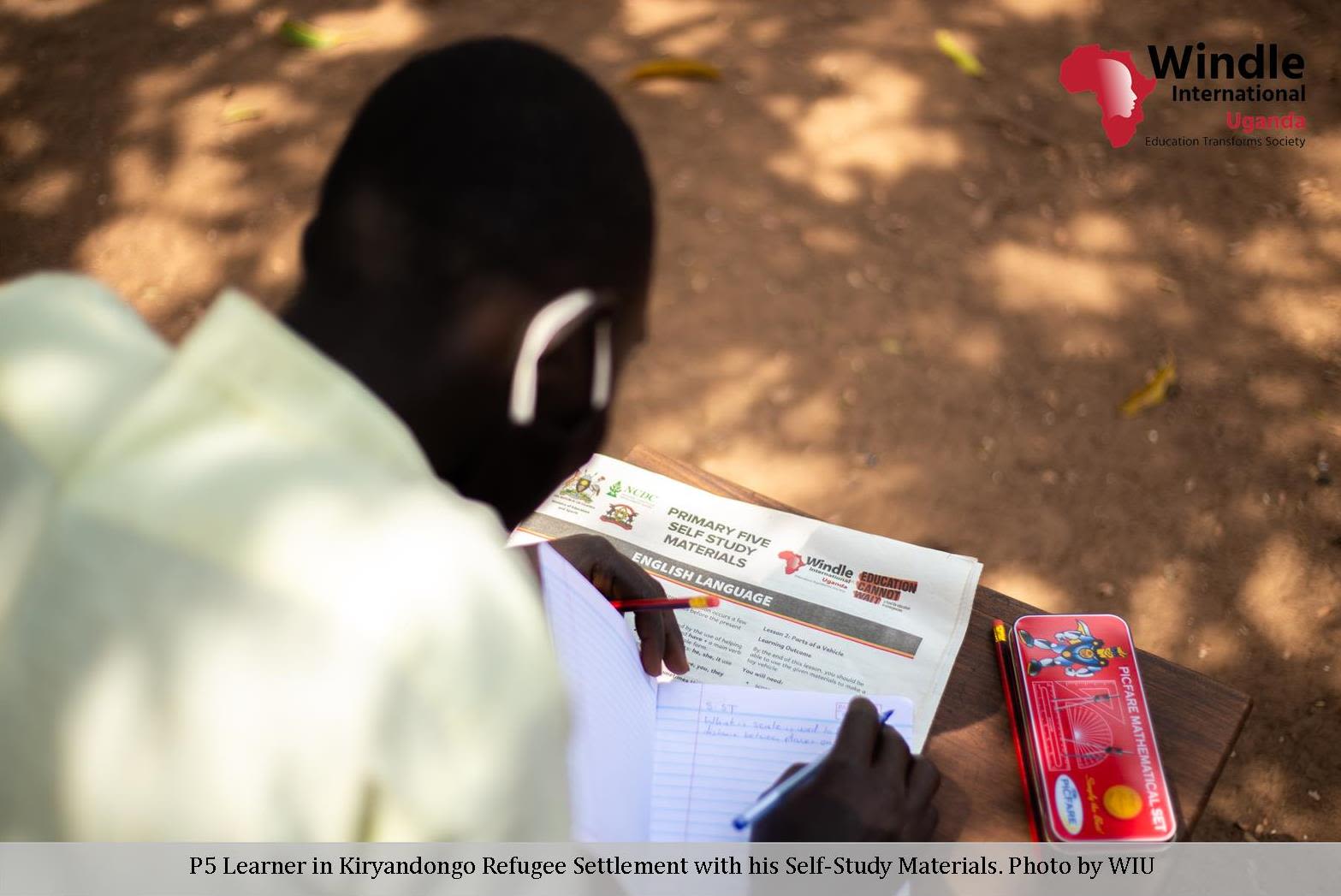
Windle International will recruit and select 40 students in Kenya and Uganda. The participants will be selected based on their level of English, their attendance at school, gender, expression of interest in the project, and cultural background.
The English for Kids Foundation will select 40 students in Europe, and match them appropriately to ensure the students are able to communicate on topics which they are familiar with.
Selected students will receive conversation guidelines, provided by the English for Kids Foundation, based on their English proficiency. In East Africa, students will follow face-to-face guided sessions, which will include training on English language, cultural diversity, peace education, ICT and human rights. The objective is to prepare young people from conflict-affected communities and offer them a safe space in which to express their concerns.
Each student will write a total of 4 emails to their counterpart.
It will be composed of two main letters and two replies where they can learn of each other's culture and life and build a friendship. Together with the students, we will review the e-mails to ensure identifying details, locations and sensitive information are omitted to preserve the student's privacy and security. Language appropriateness will also be monitored.
At the final step of the Connecting Children for Education and Peace project, the participants will send a last email including a virtual gift to their pair (poem, quote, drawing, song...). They will then meet online for a video chat. To ensure the security and well-being of the meeting, the conversation will be set-up via the Anglia’s platform. The English for Kids Foundation & Windle International coordinators will be attending to help guide the conversation, keeping it safe and ensuring appropriateness.
The project will involve writing, reading and speaking English to allow students to improve their understanding and articulation, comprehend a wide range of conversation topics and deliver more accurate and clear content. The guidance from the project coordinators will allow young people to open-up, develop critical thinking and create meaningful forms of ideas.
By helping young people from different cultures and backgrounds to express themselves, we aim to create peaceful relationships, communities and societies.
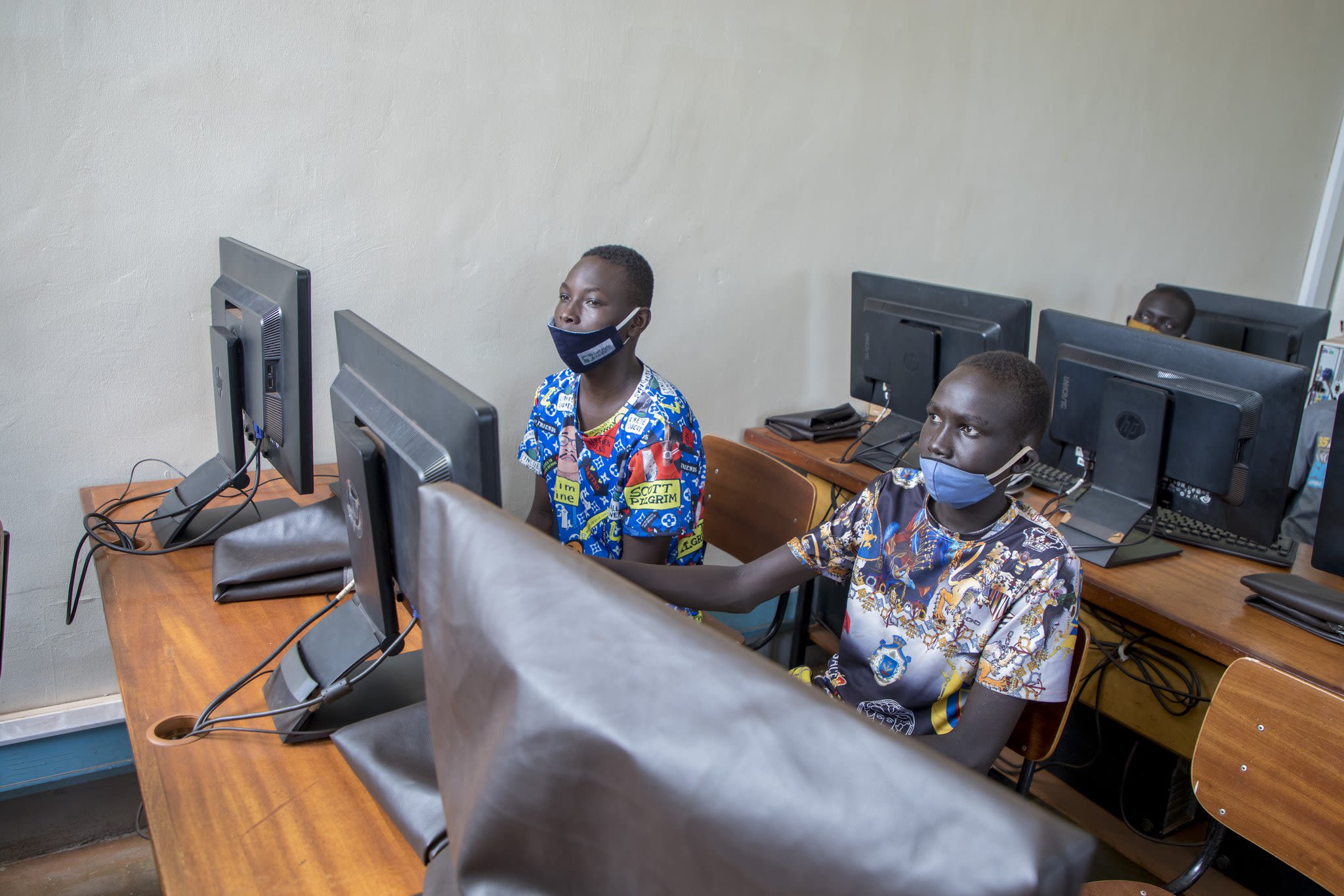
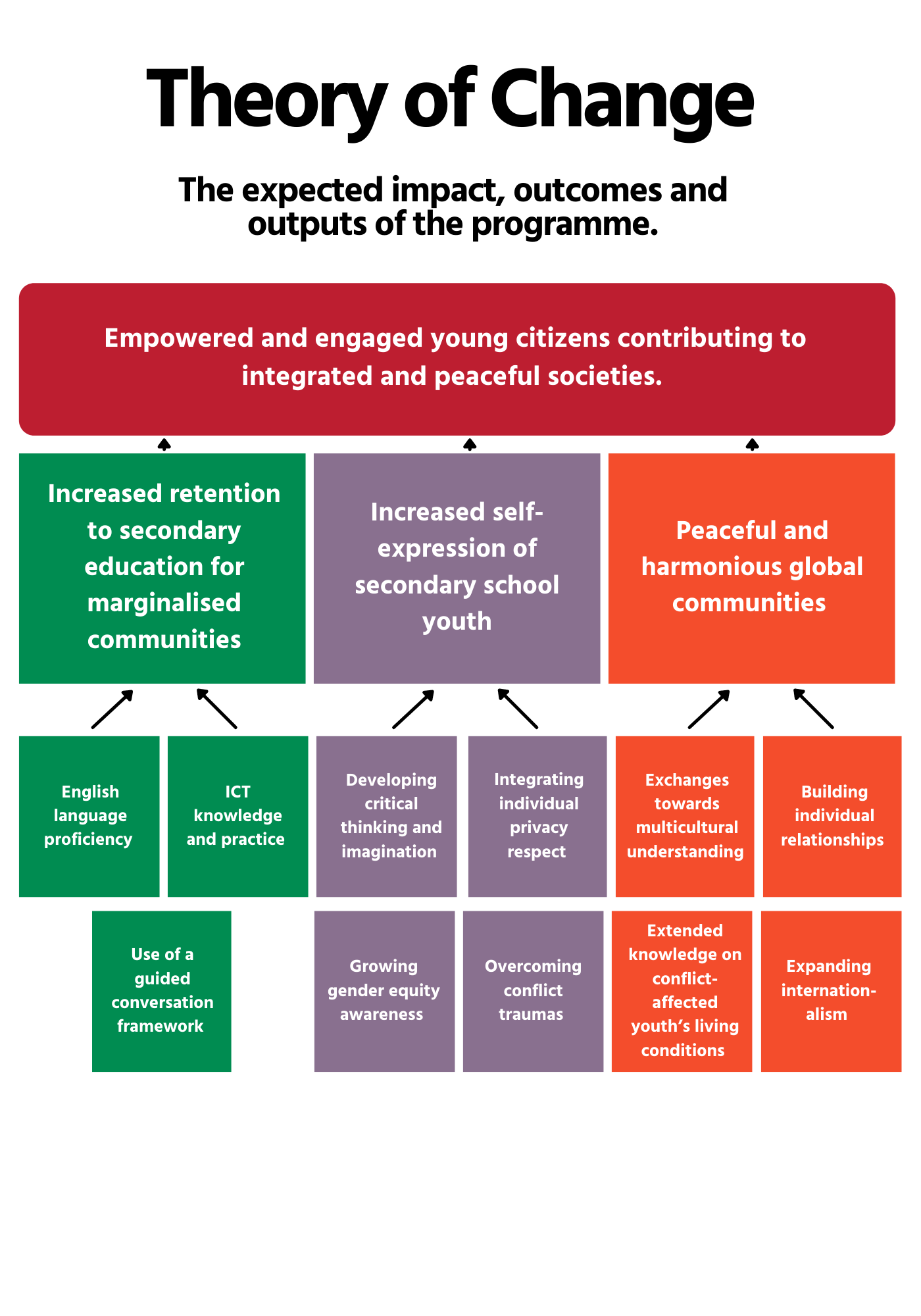
About us
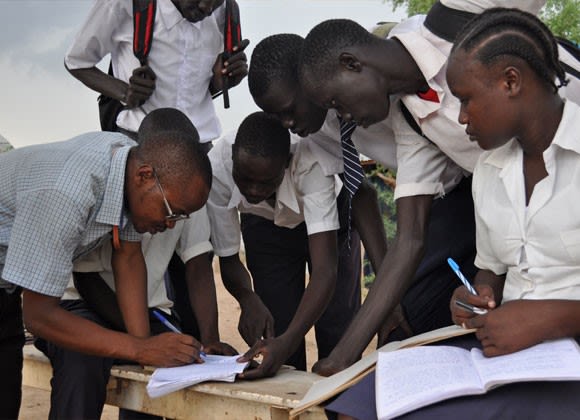
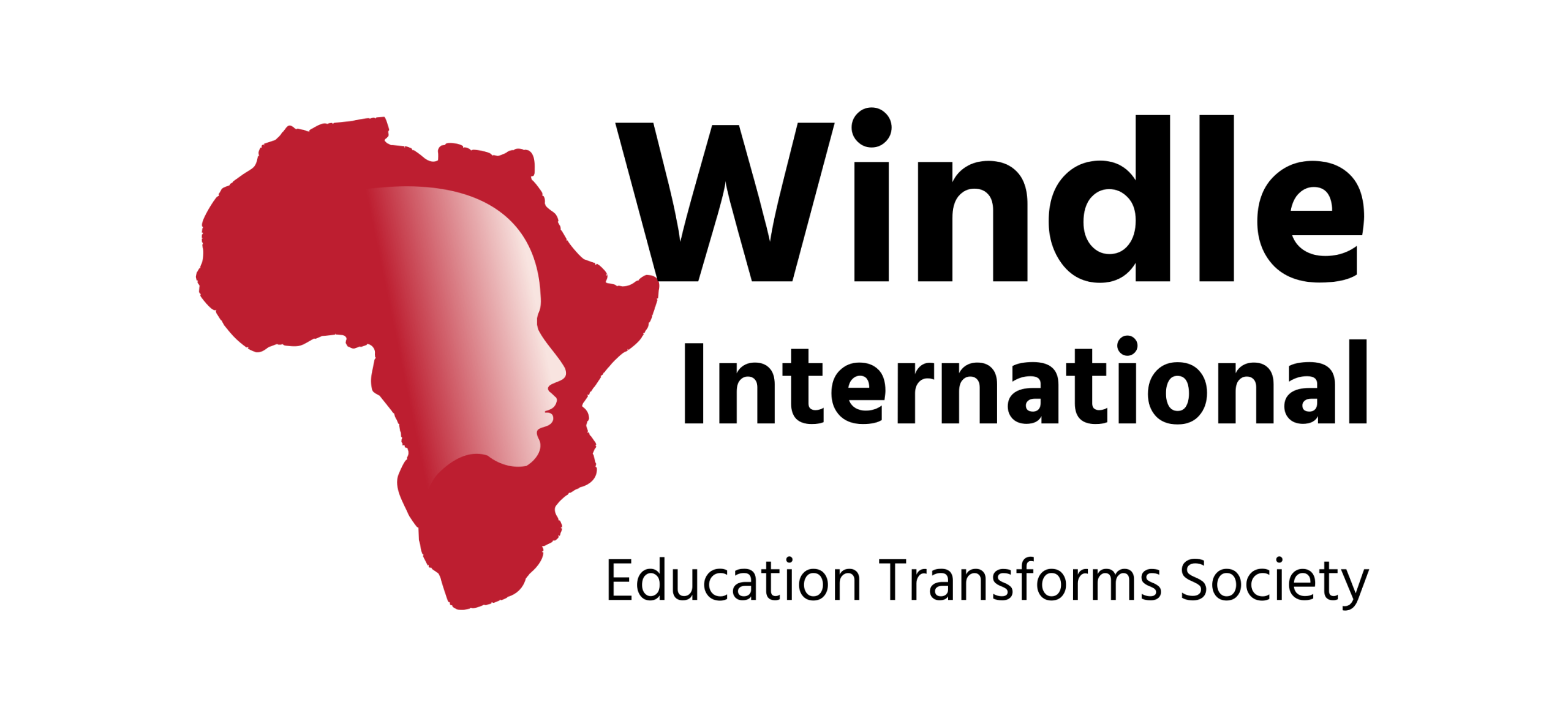
Every year Windle International helps over a million refugees and people affected by conflict to access quality education.
We are an international non-governmental organisation (NGO) with over forty years of experience, based in and operating across eastern Africa, the UK, the US and Canada.
We empower refugees and people affected by conflict and marginalisation to achieve their academic potential, and contribute to sustainable development, by acting as a lead provider of quality education and training. From managing primary and secondary schools to providing higher education scholarships and offering vocational training, we help people to succeed at every educational level.

The English for Kids Foundation supports and creates projects for less privileged children who would otherwise not have the opportunity to learn English.
We believe that providing access to English will help these individuals elevate themselves in their own life. Through English education, we want to give them a voice. A voice for their future.
Are you interested in supporting this project?
Request the full programme proposal at:
info@windleinternational.org

